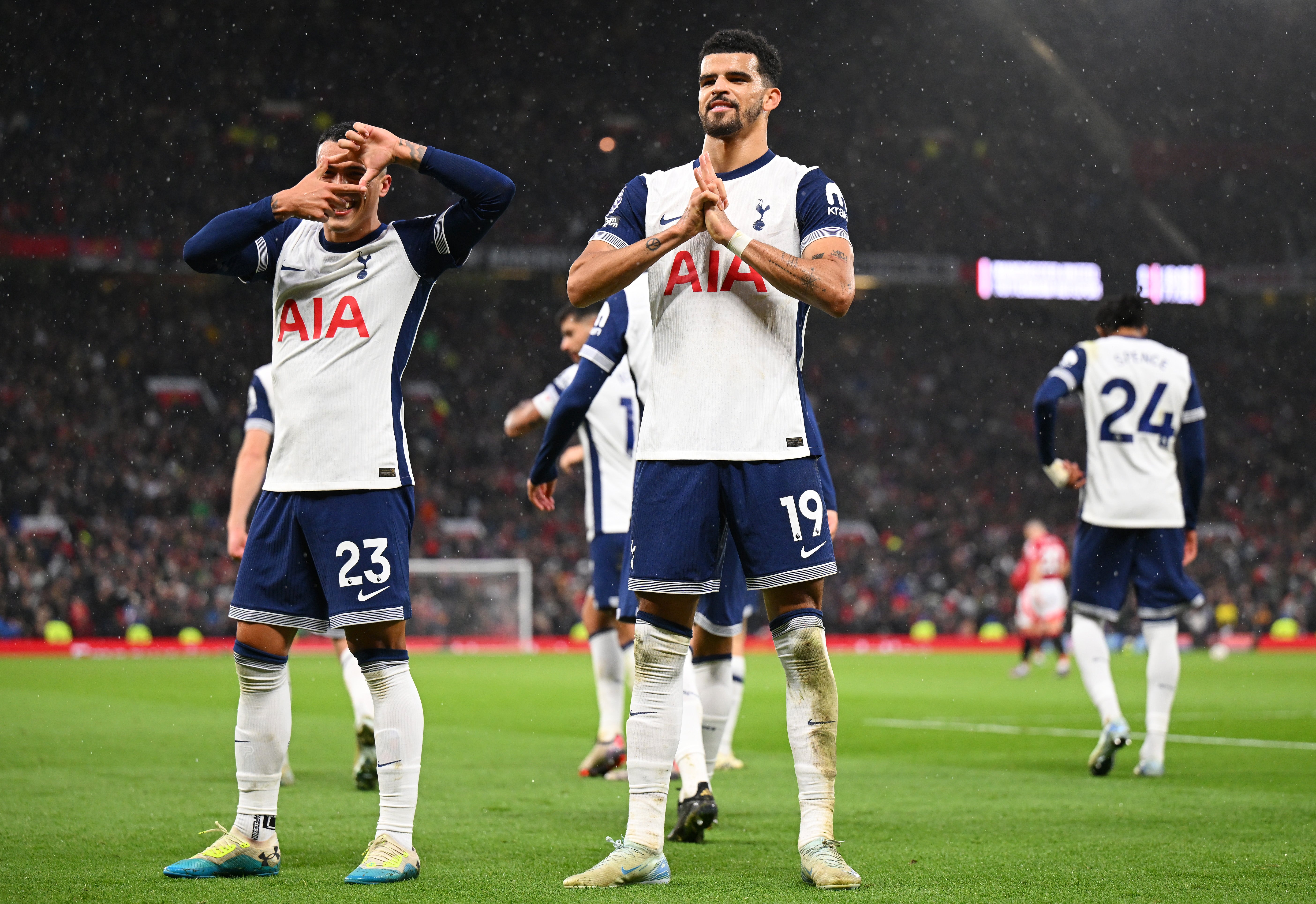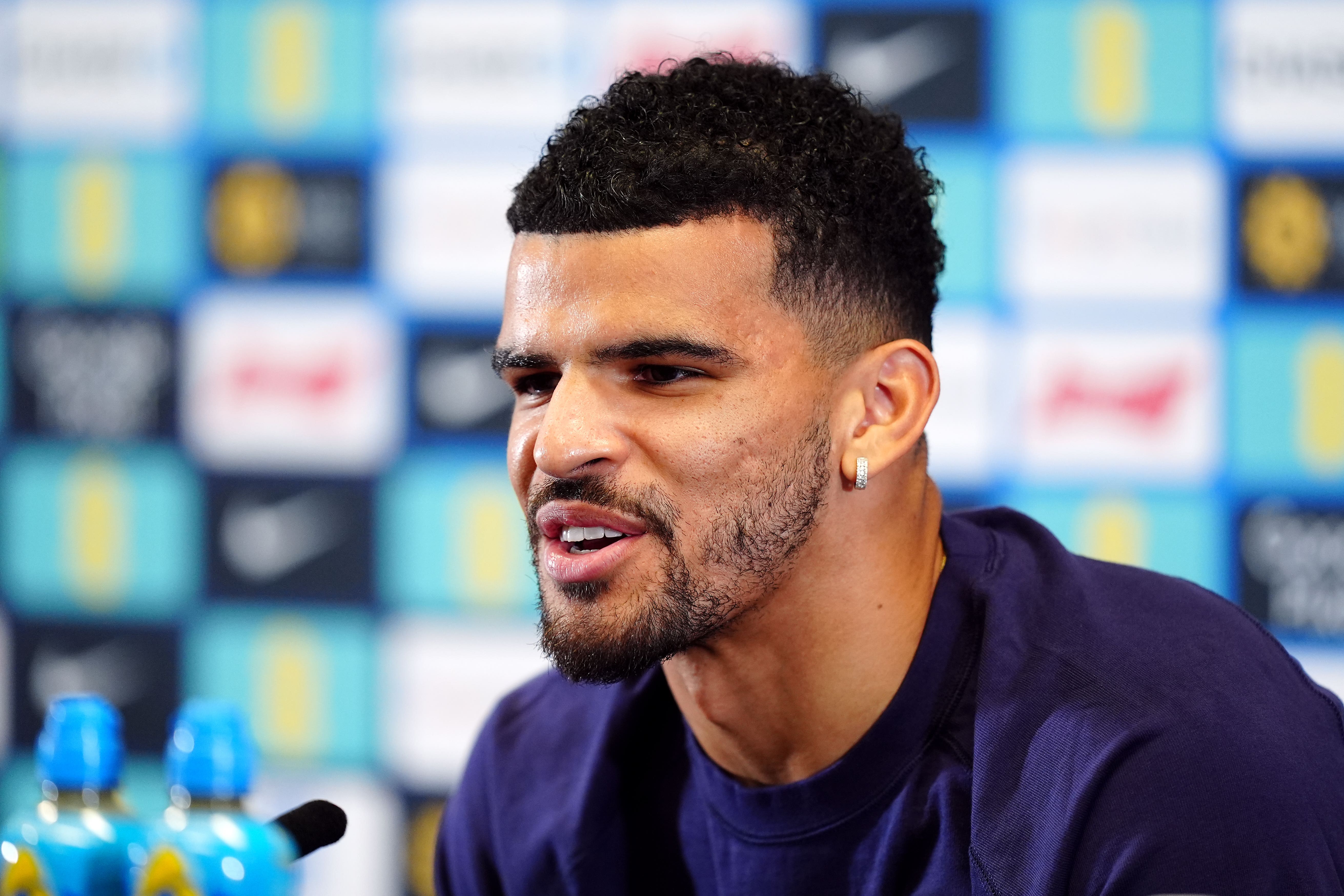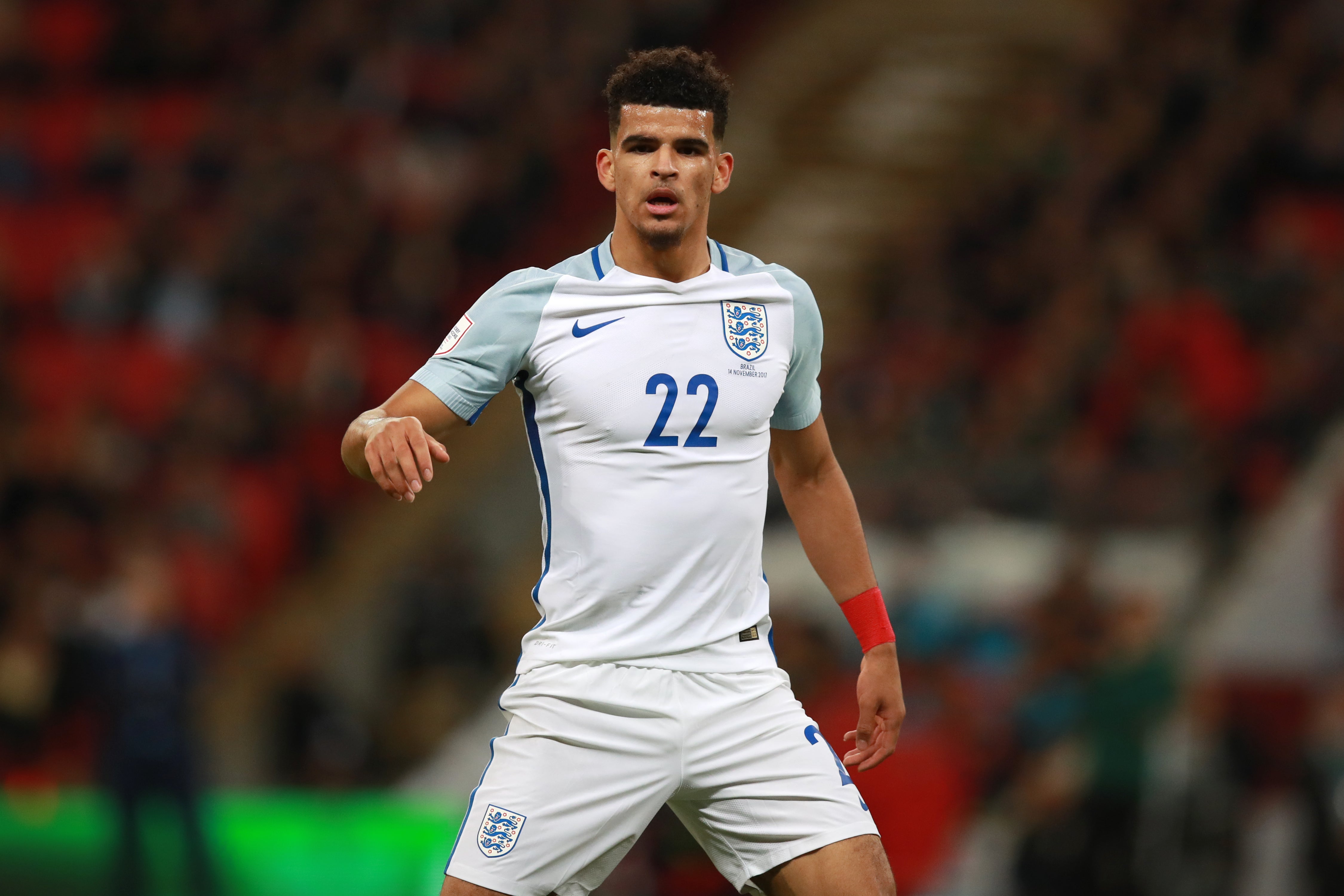
Your support helps us to tell the story
Our mission is to deliver unbiased, fact-based reporting that holds power to account and exposes the truth.
Whether $5 or $50, every contribution counts.
Support us to deliver journalism without an agenda.

Louise Thomas
Editor
Dominic Solanke can still remember the ball falling to his feet in the box. It was the 90th minute of his England debut, having just come off the bench in a friendly against Brazil at Wembley Stadium. A heavy first touch let the ball slip away as Alisson Becker rushed out to block, and just like that the moment was gone. A few minutes later the whistle blew on a 0-0 draw.
“That would have topped it off nicely,” Solanke smiles. “It was against Alisson as well, who I was at Liverpool with at the time, so it would have been great to score against him. But I’m still so happy to have had that moment.”
At full time, Solanke made a beeline for Neymar and swapped shirts. “I’ve still got it framed in my house,” he says. “It’s one of the greatest achievements of my career.”
That optimism is an essential part of the Solanke story. During a seven-year wait for his second cap, others might have given up hope of ever returning to the international fold. Now he is back after a hatful of goals for Bournemouth last season and three more this term for his new club, Tottenham.
His £65m move did not get off to the best start. Solanke, whose gleaming fitness record was one of the reasons Spurs identified him as a transfer target, hurt his ankle in the season’s opener against Leicester and missed two games. He did not make an immediate impact on his return, and three games without a goal prompted questions to manager Ange Postecoglou about whether his star striker was feeling the pressure.
“Take a breath, do a bit of yoga,” came Postecoglou’s response. Chill out and leave him be.
Then came three goals in three games: the opportunist pounce against Brentford presented itself like a gift; an almost identical tap-in on the rebound against Qarabag proved it was no coincidence Solanke was in the right place at the right time; then, the poacher’s finish in the six-yard box against Manchester United, gambling on a flick-on at a corner. In a static penalty box, only one player had an instinctive sense for where the ball would fall.

Given Harry Kane’s recent injury, there is every chance Solanke will get opportunities to impress in the two Nations League fixtures this week, first against Greece at Wembley on Thursday, and then away in Finland on Sunday. He is making a good fist of the impossible job filling Kane’s No 9 jersey at Spurs, and now he could be leading the line for his country.
“I always believed that I would get back here,” Solanke says, after a training session with his England teammates at St George’s Park. “That was my mindset and that’s one of the things I was working towards. I’m thankful to be back here and hopefully, I can stay.”
The 27-year-old may have only one cap but he has plenty of international experience to call upon, having played at every level through the age groups. He top-scored at the 2014 Under-17 European Championship in Malta, scoring in the final before England beat Netherlands on penalties, while spending his evenings studying for his GCSEs. Solanke won England’s youth player of the year award and trained with the senior squad as a reward.
Three years later, he won the player of the tournament’s golden ball after starring in England’s Under-20 World Cup win in South Korea.
Most of the U17 squad have gone on to have successful professional careers but only two others – Joe Gomez and Lewis Cook – have earned senior international caps. Solanke knows as well as anyone what it takes to break through, having effectively done so twice.

“You need to be really strong mentally. I think the mental side of football is just as big these days because there’s so many ups and downs, a lot going on, on and off the pitch. Everyone’s journey is different. You see some people have a smooth-sailing career and some not so smooth. It’s just about sticking with it.”
It was Gareth Southgate who gave Solanke his England debut, and Southgate who chose not to recall the striker in the intervening years, even after scoring 19 Premier League goals for Bournemouth last season. Ollie Watkins and Ivan Toney were preferred as Harry Kane’s understudies in Germany.
Solanke holds no grudge at missing out on Euro 2024. “It was definitely something I was pushing for, but there’s so many good players that could represent England, it’s probably one of the strongest squads in the world, so it’s not easy to pick. I didn’t quite manage to make the squad, which I was disappointed about. But that’s football.
“It’s a dream to play for your country, so when you don’t get selected it motivates you to work even harder to make the next one.”

Now interim manager Lee Carsley is the man picking the squad. Solanke was away with Spurs on a Europa League trip to Hungarian side Ferencvaros last week when a message came through on his phone. “I was just chilling in bed, preparing for the game. He dropped me a message just to give him a call. So it didn’t take me long to pick up the phone.
“I knew Cars from England Under-21 days so he’s a familiar face. He said that he’s going to put me back in, that he’s been watching the games closely and seeing how I’ve been doing. He wanted to give me the opportunity to come back into the fold.”
Should Solanke get back on that Wembley pitch on Thursday night, it will end a 2,522-day interruption to his international career. It is the biggest gulf between first and second caps since Frank Lampard Snr, who first played for England in October 1972 and then again in May 1980. Good things come to those who wait.
“It means so much,” says Solanke. “I’ve worked very hard to get back to this moment. I made my debut a long time ago now. It’s been quite a journey.”







